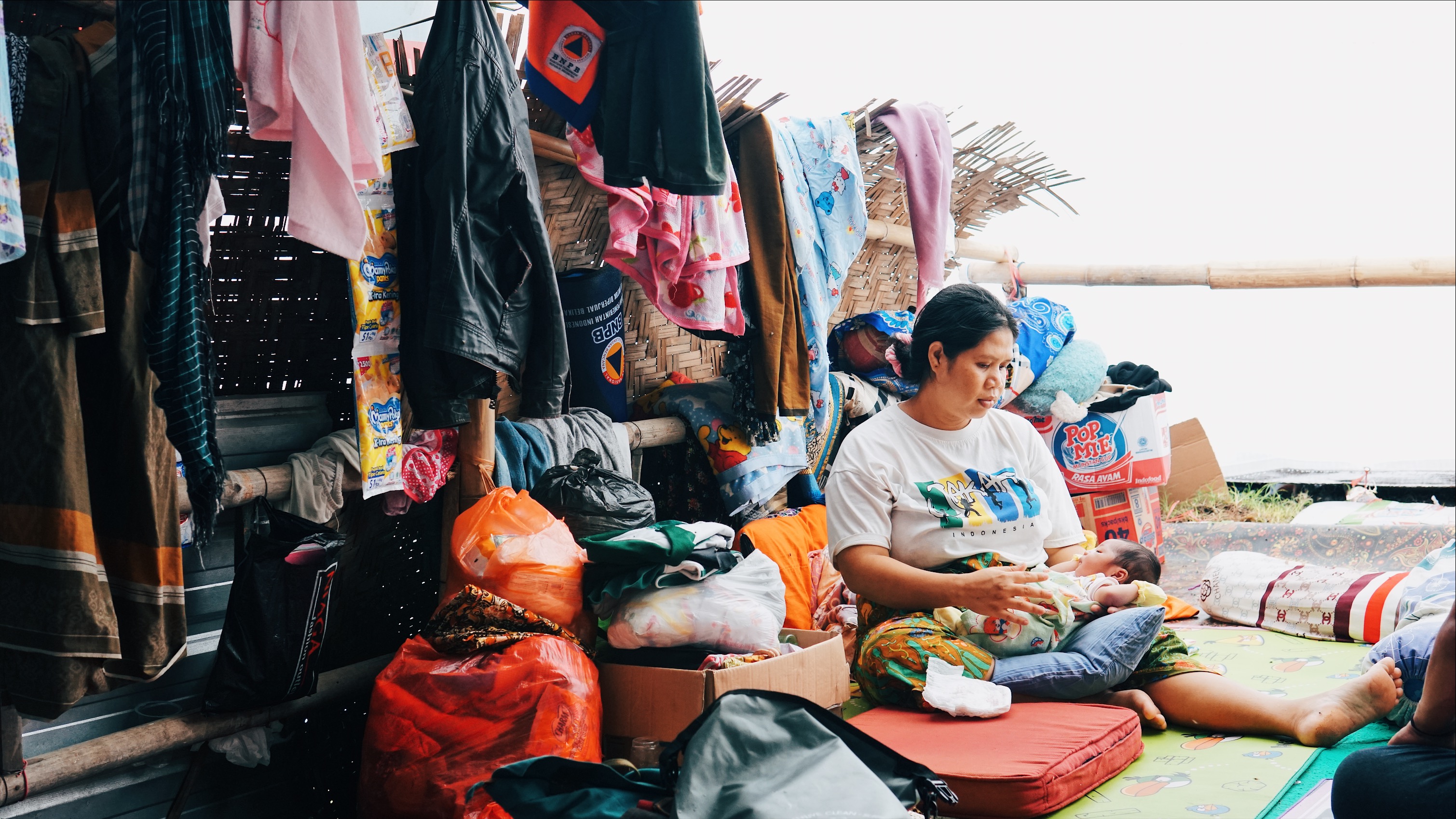WEST LOMBOK REGENCY — Siti Raudatul Janah’s contractions began the moment the devastating 7.0 earthquake struck. The Aug. 5 Lombok quake, countless aftershocks, and 6.9 temblor that hit just last week have resulted in the deaths of at least 555 people and left nearly half a million homeless.
The 34-year-old was not due to give birth for eight days, but this was her third child and she had a feeling, call it mother’s intuition — the baby was not going to wait.
As she burst from the door of her home and into the night, hurried along by her husband and two children, she didn’t have time to be frightened by the rolling earth, which felt like it was sliding out from underneath them, or to watch in horror as buildings in their village began to disintegrate.
Instead, she hopped on a motorbike that was gunned in the direction of the puskesmas, the local clinic.
Even though the baby was due to be born in just over a week, he was not in prime birthing position, and he was too big, meaning the clinic would be unable to deliver him naturally. Given the clinic’s limited facilities and medical personnel, a cesarean was also out of the question.
Janah was quickly transferred to the better-equipped RSAD Wira Bhakti Mataram hospital. When they arrived, they found the hospital’s staff and patients standing in front of the building — driven outside by the very real possibility of the structure collapsing during an aftershock.
The conditions were less than sterile, but in the wee hours of Aug. 6, Mohammad Zyahid Syarif was finally delivered via a C-section administered in the parking lot.
“He was big, six kilos,” the baby’s 10-year-old sister, Zora Rahmudani proudly told Coconuts Bali earlier this week when we visited the family’s village, which, like nearly every other village in West and North Lombok, is now home to a cluster of refugee tents.
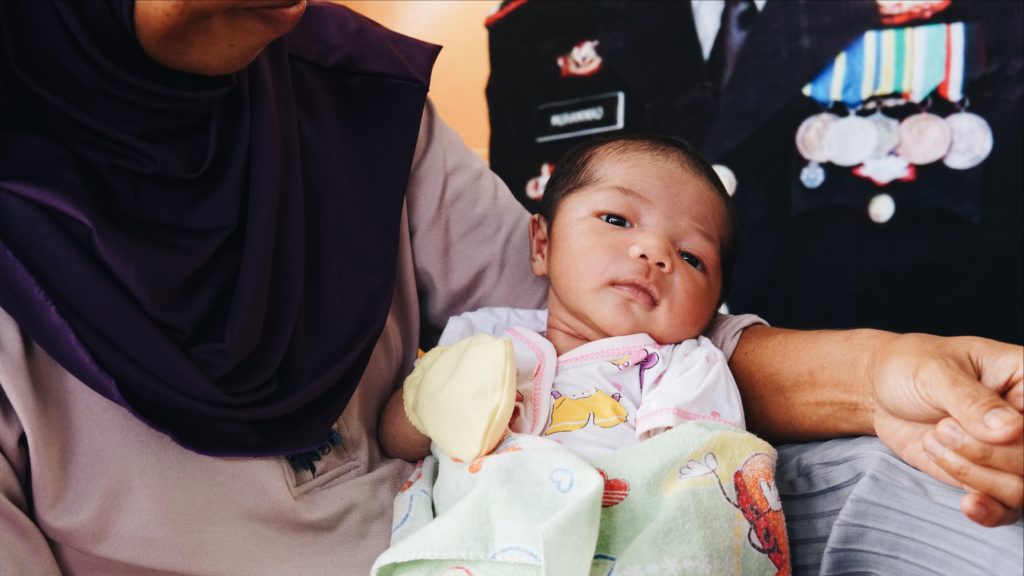
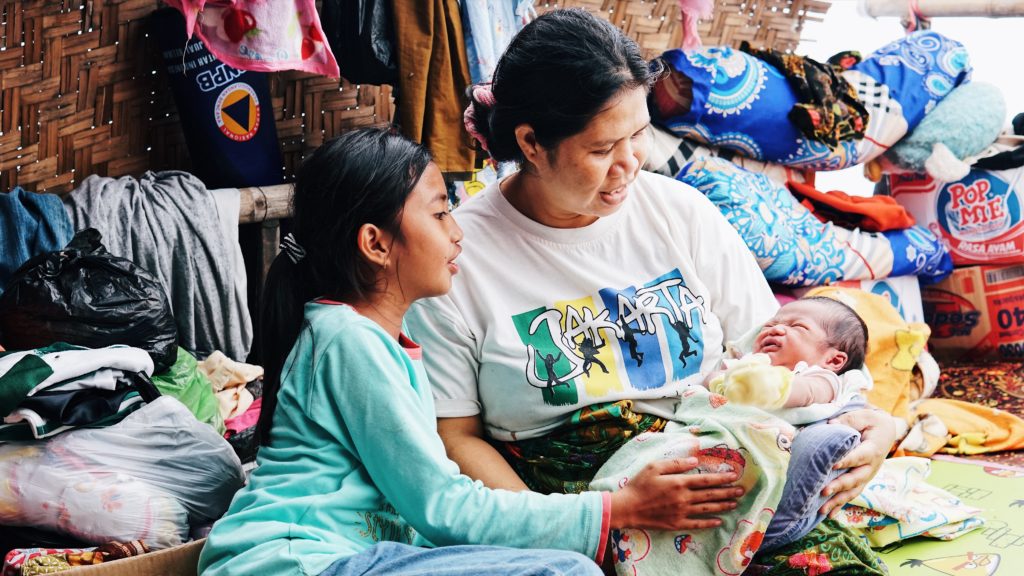
The family’s hometown of Dusun West Embungpas is located in the island’s West Lombok Regency. While North Lombok Regency was closer to the quake’s epicenter and saw more buildings destroyed, there are sections of West Lombok that have been utterly devastated.
Three weeks later, most residents are still sleeping outdoors, afraid whatever buildings survived the quake could quickly turn into tombs if another hits with them inside.
“We don’t know how long we’ll be here. We’re too afraid to go inside; it’s safer to sleep in the tent,” Janah said as she nursed Zyahid, surprisingly calm for a baby who has spent his first weeks on earth as an earthquake refugee.
But while camping out eliminates the possibility of a building flattening you in your sleep, there are myriad problems that arise from exposure to the elements, particularly in tropical Lombok, where days are hot and muggy and evenings are chilly and filled with flesh-biting mosquitos — some carrying dengue.
With monsoon season around the corner, evacuees can expect flooding and leaks in their makeshift tents, which are mostly fashioned from tarps and whatever odds and ends are available. Plastic ad banners have proven particularly useful.
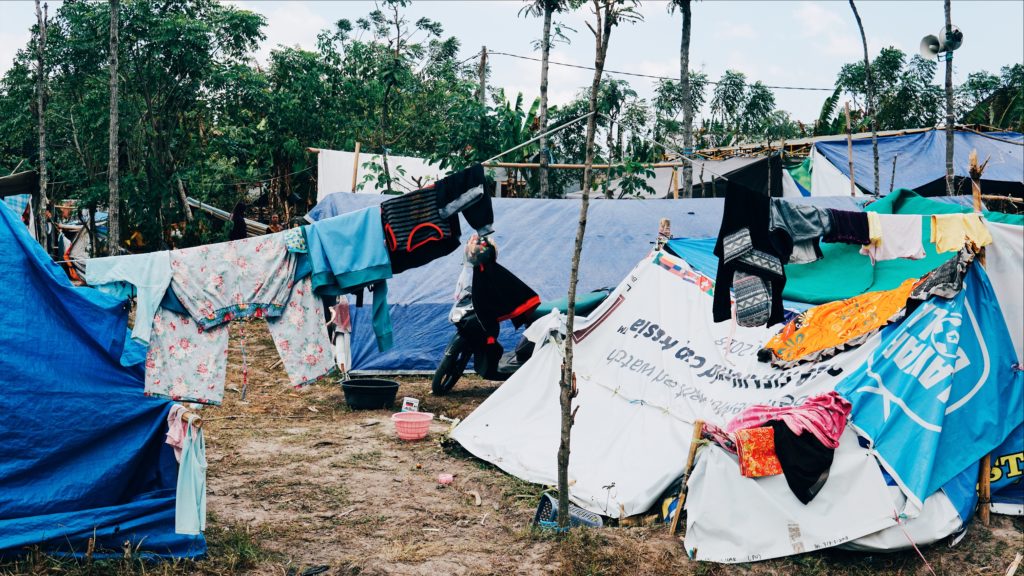
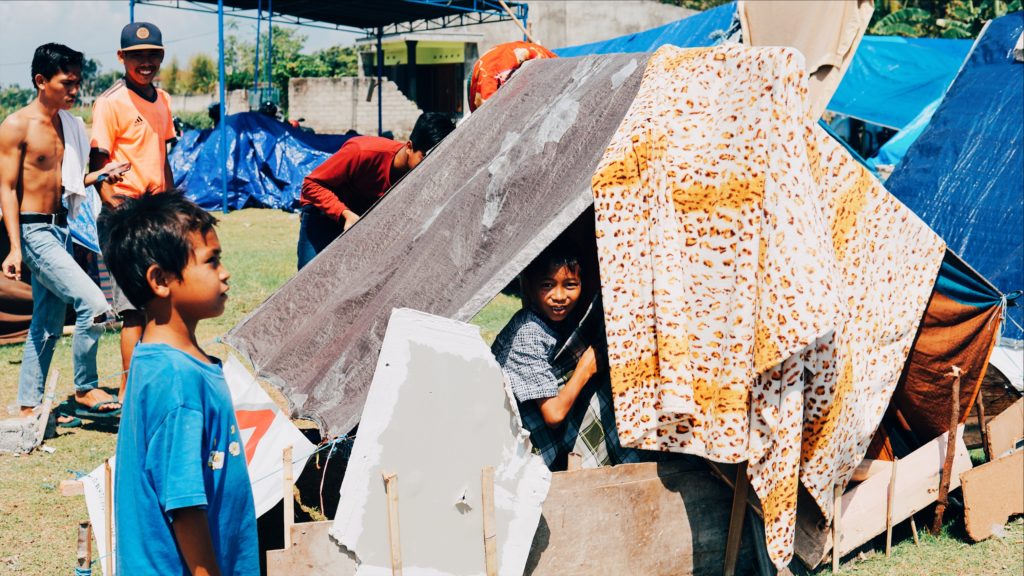
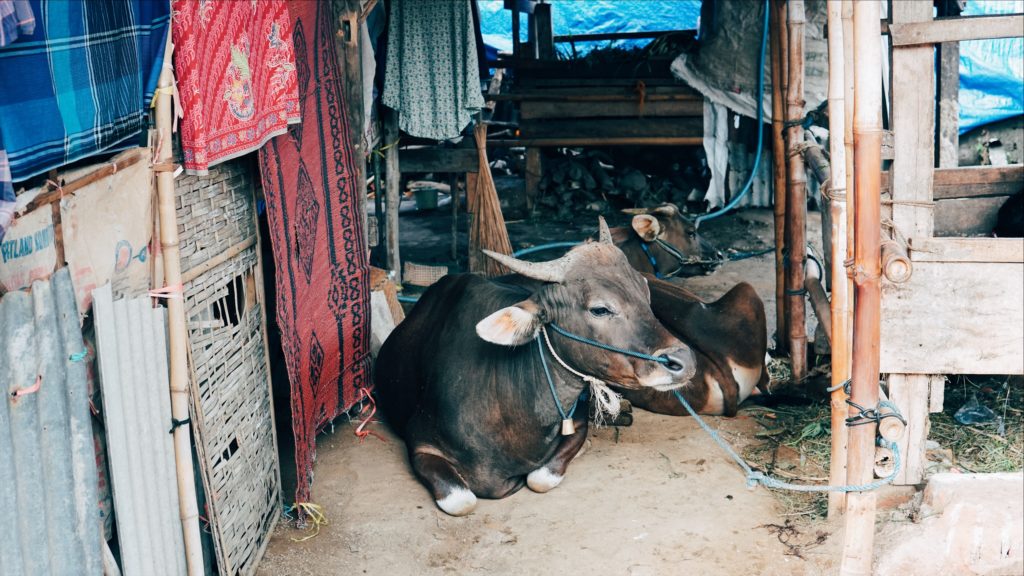
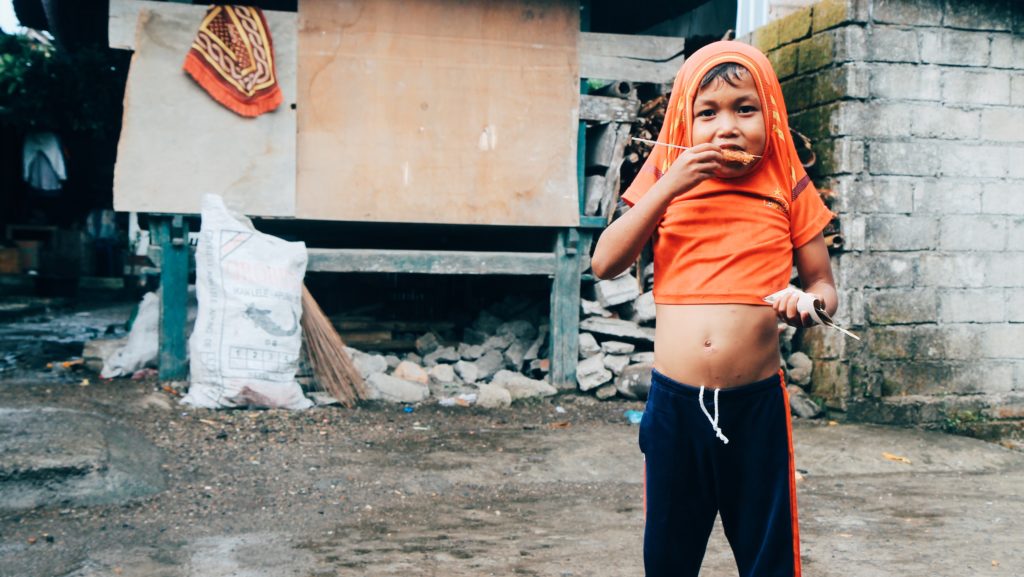
An additional health challenge facing West Embungpas is that it’s predominantly a village of cattle farmers. Cows are tethered in stables just tens of meters from the field where villagers have pitched their own tents. And with cows come dung containing pathogen-causing illness.
“I worry for the baby’s health, we’re so close to the stables,” Janah told us, her eyes betraying a tiredness that seemed to age her beyond her 34 years.
Born into disaster
More than 10,000 kilometers away, Robin Lim was teaching at a seminar in Hawaii when the earthquake struck. A midwife and the founder of Bumi Sehat — an NGO specializing in natural births and maternal and infant health for low-income populations — Lim has worked in numerous disaster situations and quickly sensed how great the need would be.
Her first step was to get US$5,000 in funds released for immediate use by the IDEP foundation, a local NGO partner. By the time she was able to return to Bali on Aug. 12, her own team was preparing to join IDEP on Lombok.
This is the seventh natural disaster to which Bumi Sehat has responded, including the 2004 tsunami that ravaged Aceh, the 2006 earthquake in Jogja that killed more than 5,000, and typhoon Haiyan in the Philippines, one of the strongest tropical cyclones ever recorded.
In these post-disaster relief efforts, the team has done a high volume of prenatal check-ups for mothers, most of whom had never had a check-up before and were uncertain even of their own due dates, said Lim.
While the midwives of Bumi Sehat weren’t on the ground in Lombok to help deliver Zyahid, they’ve spent the past two weeks providing healthcare for new mothers like Janah and her newborn as well as those who are expecting.
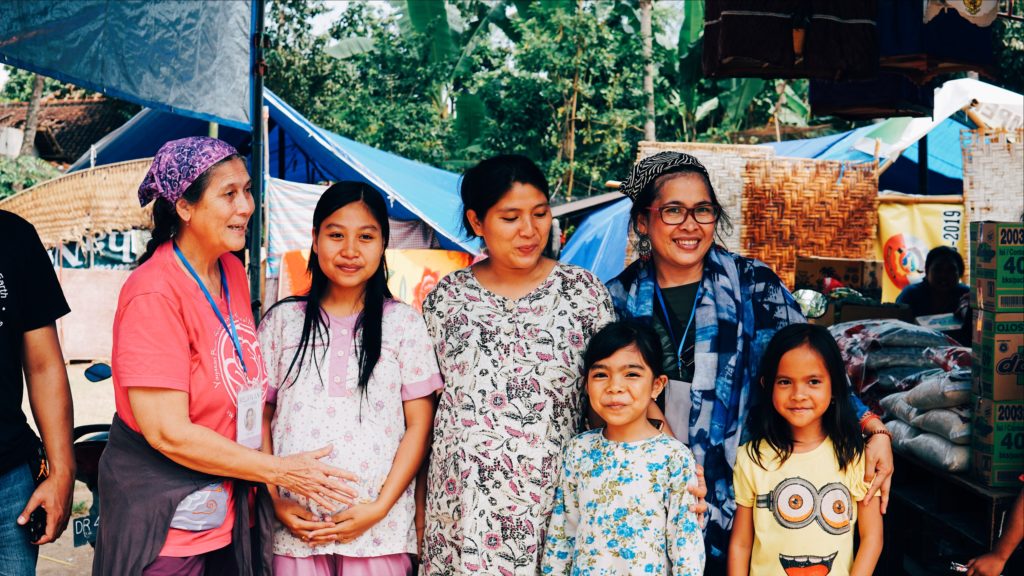
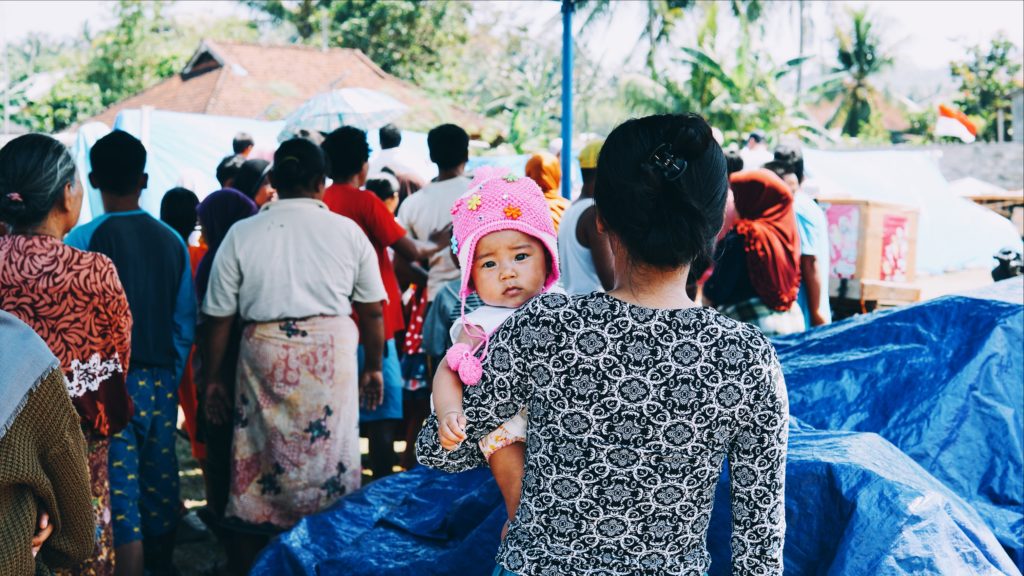
“Expectant mothers who lose family members, lose their homes, lose their livelihood, have little access to nutritious food (or any food) and difficulty even finding potable water, must still birth their babies,” Lim said in a recent interview.
“Malnourished and dehydrated mothers are much more likely to face complications in childbirth, specifically hemorrhaging. Also, the stress of loss and grief, plus lack of hydration and healthy food, can often cause high blood pressure. This greatly increases the risk of seizures during childbirth and postpartum.”
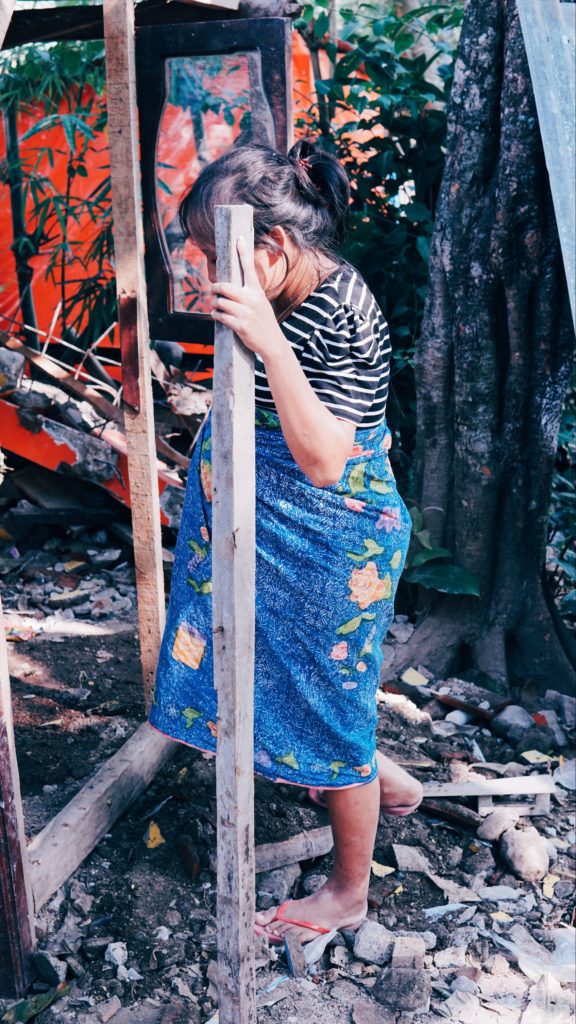
A CNN “Hero of the Year” in 2011, the veteran midwife is a passionate woman of strong opinions. She moves quickly and operates with a blunt candor, particularly when it comes to issues affecting the health of mother and child.
The fact that she’s operating in a disaster zone does nothing to soften her position on the breastfeeding vs. baby formula debate, for instance. If anything, it’s only made her a more determined evangelist for the former.
“Babies in Indonesia are 300 times more likely to die in the first year of life if they are fed infant formula (bottle fed) as opposed to breastfeeding, which is optimal, especially in disaster zones, where water and sanitation issues are huge,” Lim told Coconuts Bali.
The NGOs dealing with those issues are almost exclusively Indonesian at the moment.
Because the Indonesian government has refused to declare the quakes in Lombok a “bencana nasional,” or national disaster, foreign aid workers have not been allowed in. That means local NGOs have of necessity taken the lead, something Lim believes is ultimately for the good.
“It is very important to work directly and closely with the local providers, I have seen may international NGOs pushing ‘help’ on disaster survivors that is culturally inappropriate and all too often far from what is really needed,” she said.
“For example, an American surgeon in Nepal doing cesarean surgery on every birthing mother, in a tent.”
Where the doctor saw “efficiency,” Lim saw mothers being talked into what she believes was an entirely unnecessary procedure.
“There was not proper post-surgery care, the women did not want cesarean birth, and they had no proper homes to return to in the aftermath of what was a disaster (unnecessary cesarean) upon disaster (earthquake),” she said.
Those sorts of concerns extend to breastfeeding as well.
“It hammered my heart to see mothers in Aceh being given one bottle and one box of infant formula. They had no kitchen to properly hygienically prepare the bottles for feeding, no clean water to mix it with, no money to buy the next box of formula,” she said, explaining that “exclusive breastfeeding for the first six months of life, gives babies their best shot at survival.”
That’s a message that Bumi Sehat has driven home to young mothers in recent days.
Since arriving on the island, Lim’s medical team of Indonesian volunteers has based itself in Gunung Sari, West Lombok, working alongside the midwives of the local puskesmas and the clinic’s head, Dr. Akmal Rosamli.
The first team on the ground, which was conducting general health checkups this past weekend when Coconuts Bali visited, consisted of one doctor, two midwives and three nurses.
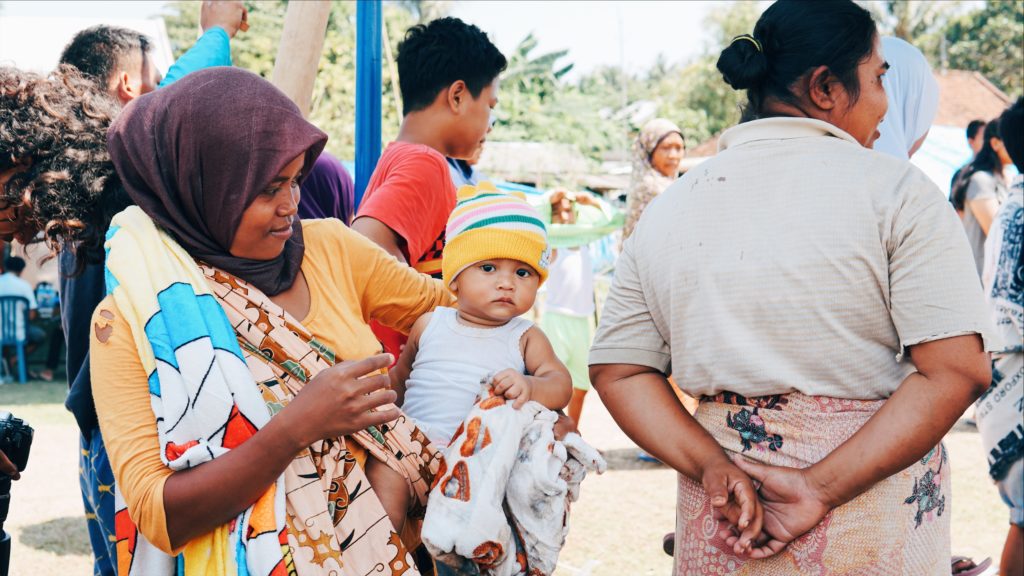
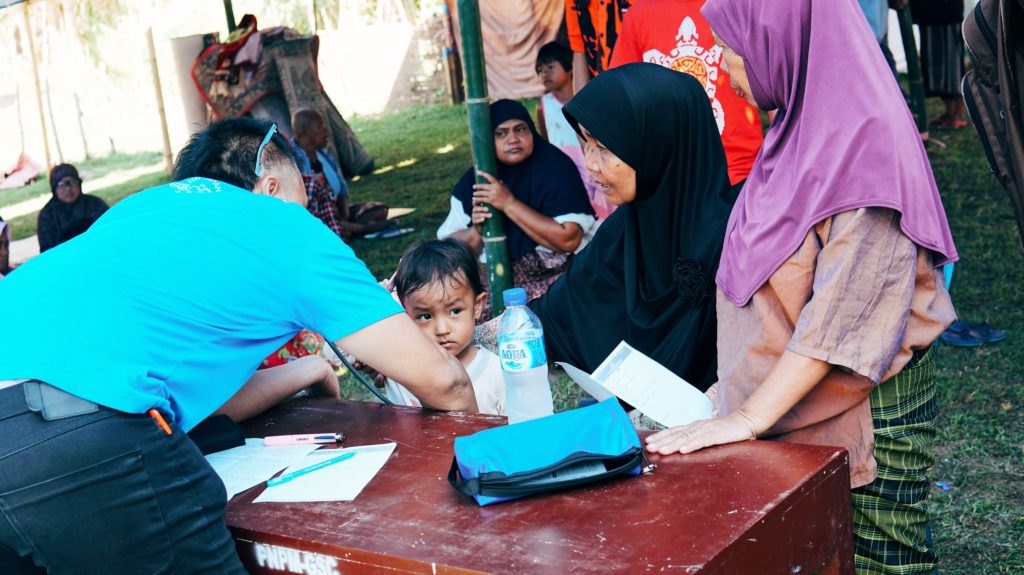
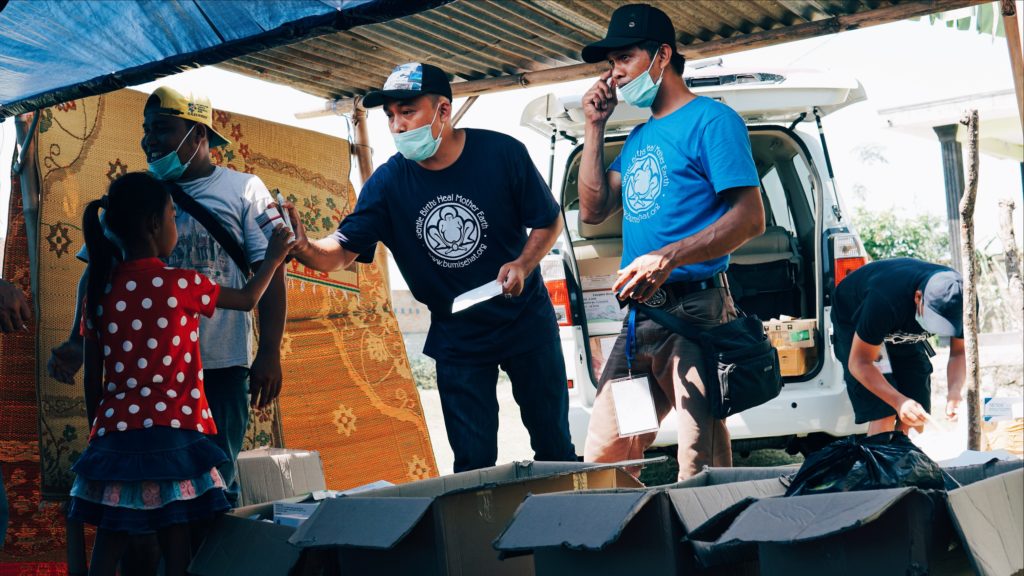
The next step would be establishing “Mother-Baby health tents” and safe birthing spaces, Lim told us.
Gunung Sari, the home region to one of Bumi Sehat’s senior midwives, Bu Yudi, has experienced an extreme level of wreckage, something we saw for ourselves last weekend.
Given that earthquakes even now continue to rip through Lombok — a few of which sent us sprinting into the street during our visit — the road to recovery is likely to be a long one, as proper rebuilding can’t begin until the threat of violent aftershocks has subsided.
“The hospitals, the puskesmas, community health centers, even the expensive private hospitals are structurally unsound. There is no quick fix. It will require deconstruction of any buildings that have not completely fallen down, then rebuilding,” Lim told us, underscoring the lack of funds and available building supplies.
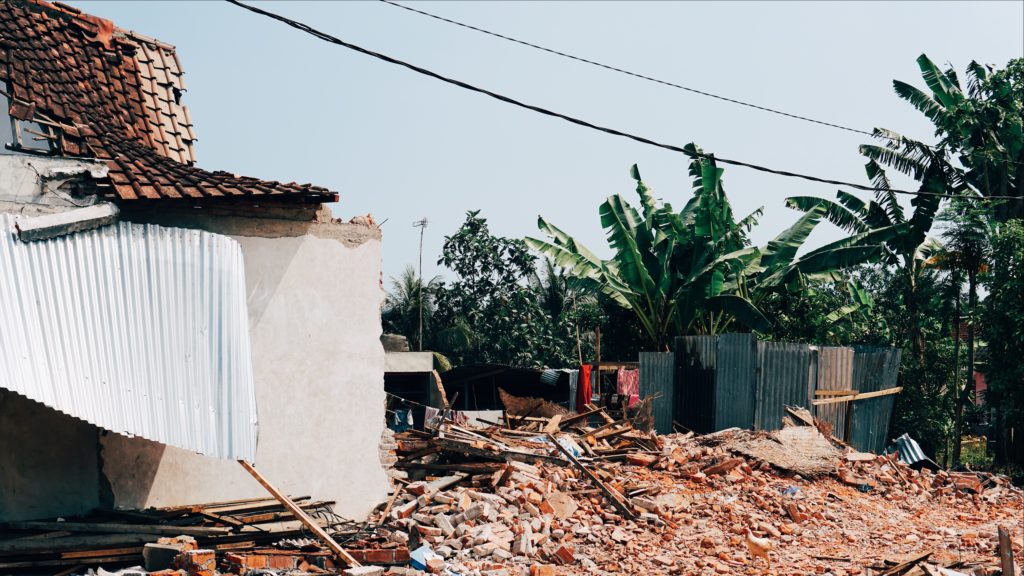
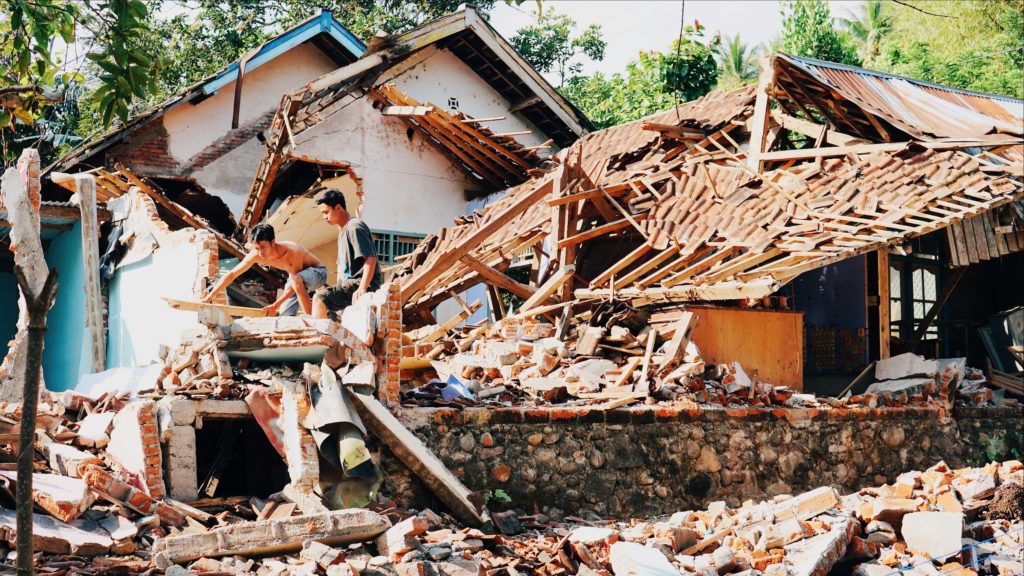
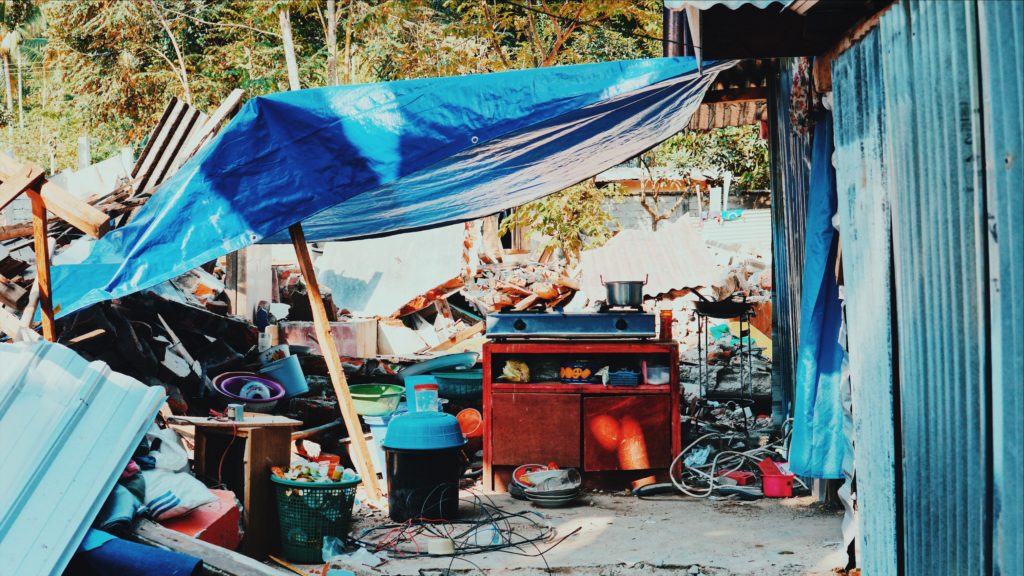
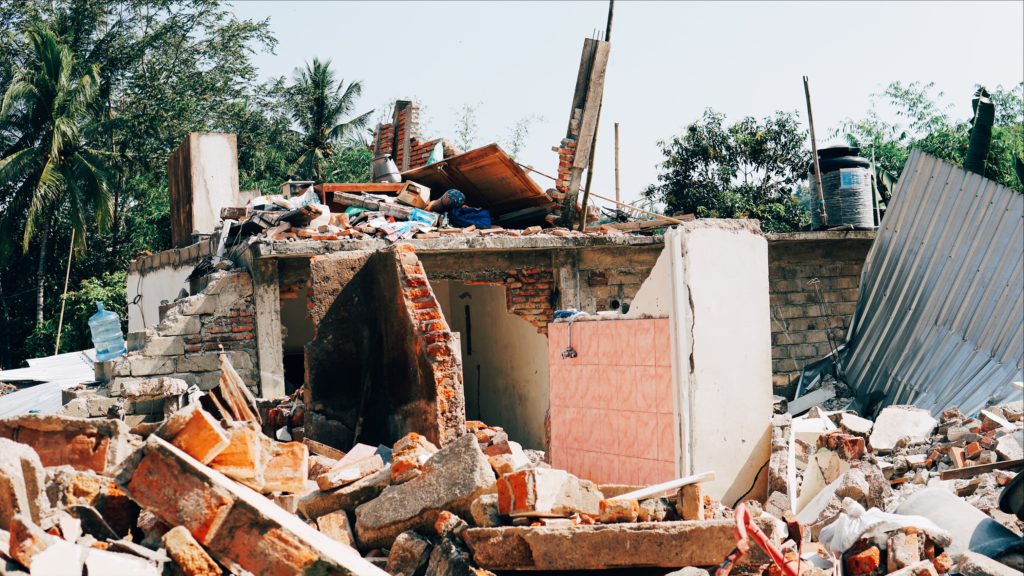
“The fact that the earthquakes keep coming makes it very, very difficult for the people of Lombok to begin taking the first steps in the long road to recovery. What I witnessed was so much courage, resilience and determination, in the middle of utter devastation.”
That courage and resilience was readily apparent in Janah, the young mother we met during our visit.
Fearful of aftershocks, of the possibility of disease, the 34-year-old nevertheless showed only resoluteness when looking into her uncertain future.
“We will keep living like this for as long as it takes,” she said, clutching Zyahid close. “We have no choice.”
